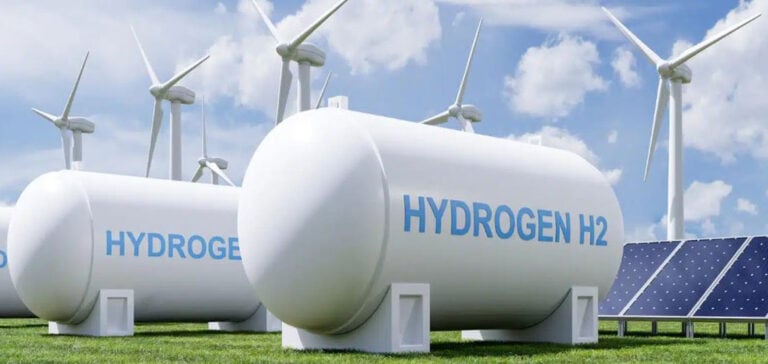Hydrogen electrolyser projects are booming worldwide, reaching a total capacity of 1,190 GW, according to the latest data from Aurora Energy Research. This growth, while still significant, has slowed over the past six months, to 66 GW.
Regional diversity in hydrogen expansion
One notable trend is the growing regional diversity of electrolyser projects. South America tops the list, with 25 GW added since April 2023, followed closely by Oceania, which has announced 20 GW of projects. By contrast, the proportion of projects in Europe that progressed beyond the initial planning phase fell to 46%, marking a significant shift in the geographical distribution of these projects.
Increase in electrolyzer production capacity
Global electrolyser manufacturing capacity is expected to reach 59 GW per year by 2025, representing an increase of over 20% compared to April 2023. What’s more, electrolyser production outside Europe is about to overtake that of Europe itself. This reflects an important change in the dynamics of the hydrogen industry.
Europe as a leader in hydrogen projects
Europe continues to play a major role in bringing these hydrogen projects to fruition, with governments across the region on track to purchase 2.5 GW by 2025. Auctions scheduled over the next six months have the budget to secure over 400 MW, demonstrating a continuing commitment to this technology.
Hydrogen’s transformative potential in the energy transition
Hydrogen is increasingly recognized for its transformative potential in the energy transition. By replacing fossil fuels in hard-to-decarbonize sectors such as heavy industry and transport, hydrogen can play a key role in achieving carbon neutrality by 2050.
Challenges to current operational capacity
Despite the rapid growth in electrolyser projects, it is important to note that current operational capacity worldwide is just 790 MW, or less than 3% of the UK’s average electricity demand. Financing remains a major challenge for the future growth of this industry.
The crucial role of government support in the hydrogen industry
Government support is essential to enable developers to bring these projects to fruition, and European administrations are stepping up their efforts in this regard. The next few months will be crucial, as governments announce support allocations for more than 400 MW.






















